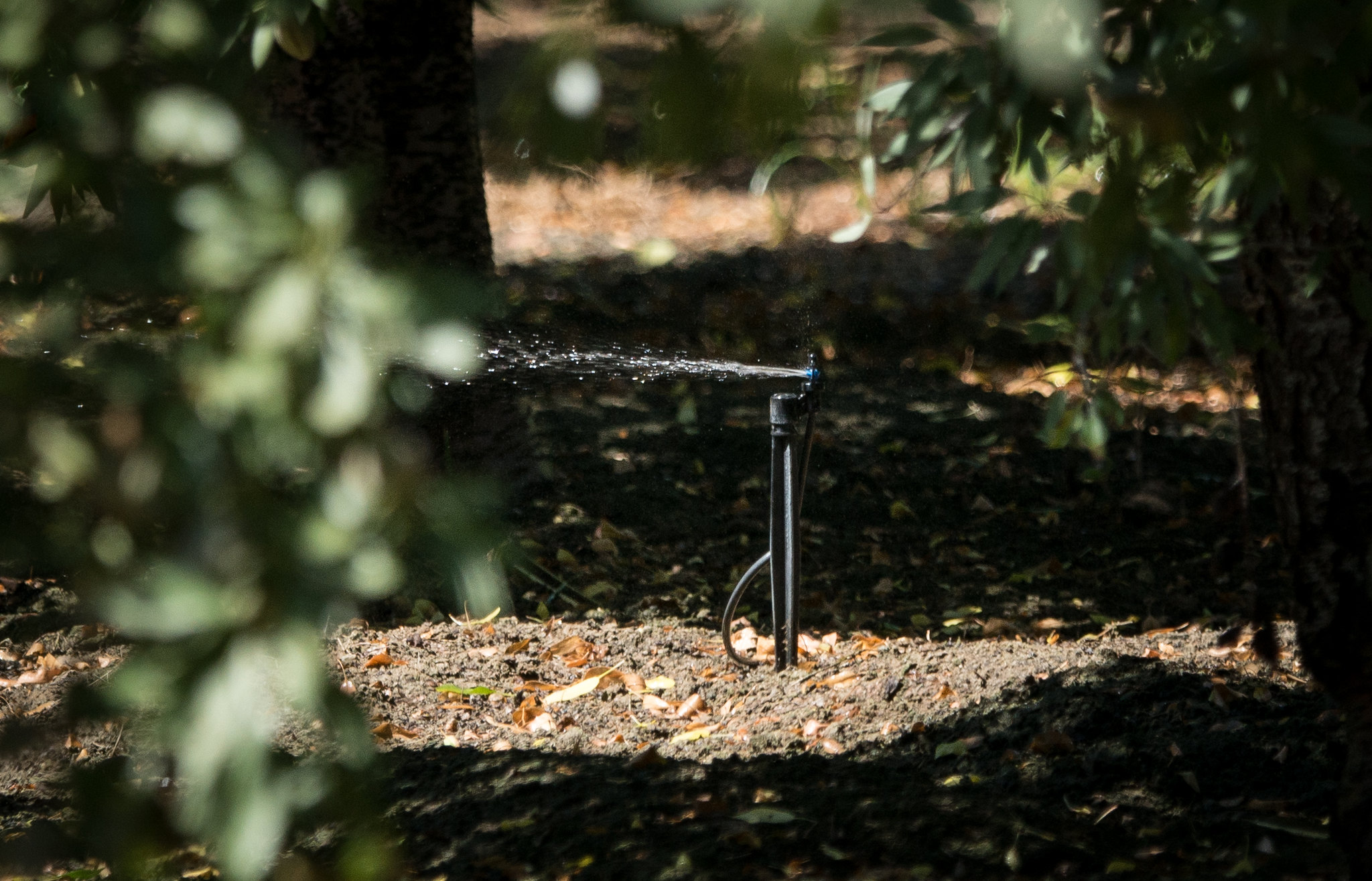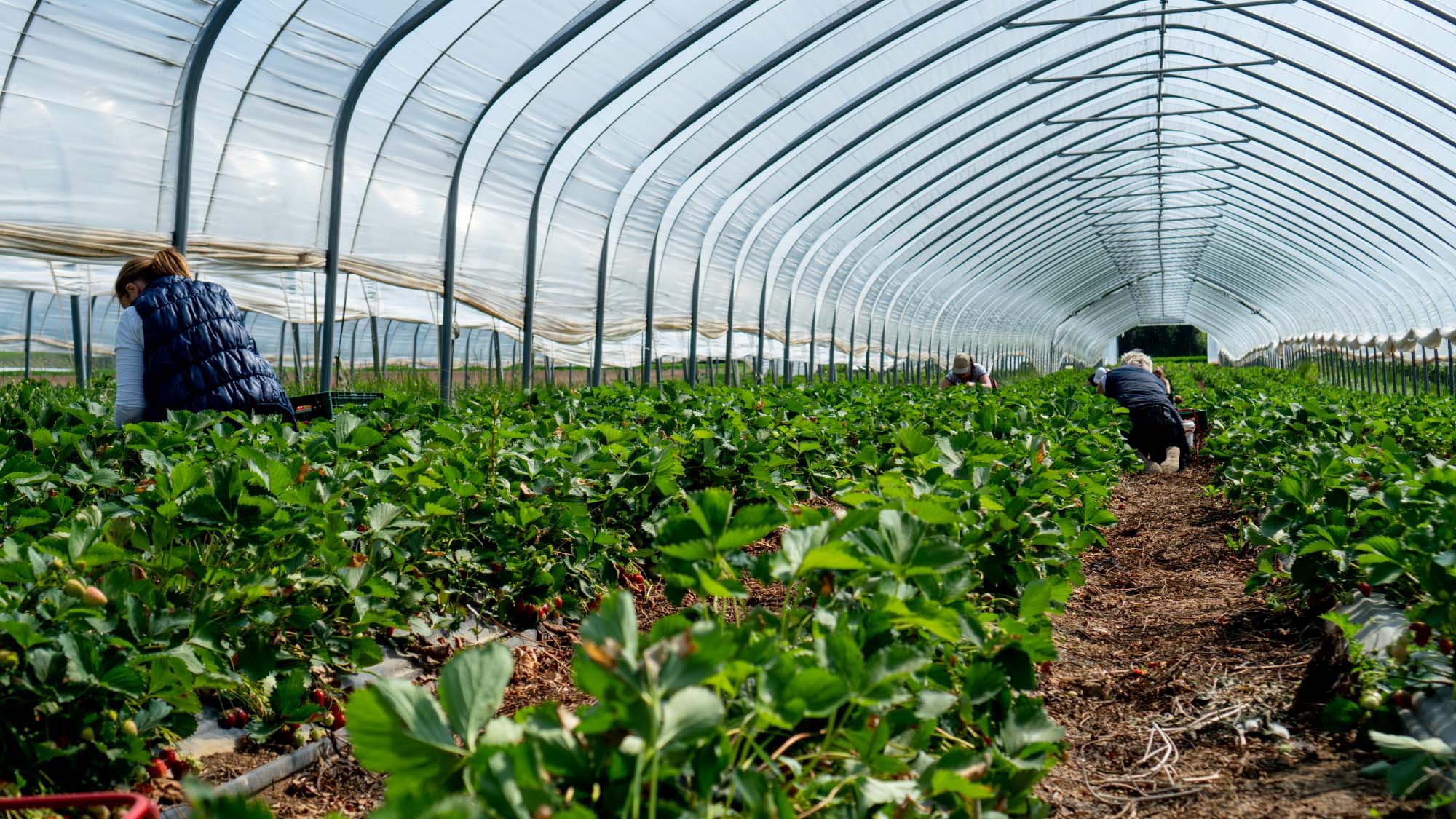Climate change is reshaping California agriculture, creating urgent needs for climate-smart conservation practices. While federal and state programs exist to support these adaptations, their structures often create a barrier: farmers must pay substantial upfront costs and wait months for reimbursements. Some programs have a process to overcome the cash flow challenge, but FarmLink and its partners have designed wrap-around alternatives.
To help farmers overcome financial barriers, California FarmLink created the Conservation Bridge Loan Program, which offers loans with interest rates as low as 0%. These loans allow immediate implementation of conservation practices, with repayment scheduled once the farmer receives reimbursement. The program expands access to initiatives such as SWEEP, EQIP, Healthy Soils, and the Carl Moyer Program (see below for more information), offering hands-on support in English and Spanish to guide farmers through technical and financial processes to get support for their climate-smart practices.
“The Conservation Bridge Loan is designed specifically for small and underserved farmers who are implementing conservation practices,” says Tito Ortega, FarmLink loan officer. “It combines access to capital with deep relationship-based support, technical assistance, and a strong understanding of the unique challenges in sustainable and small-scale agriculture.”
The bridge loan's effectiveness stems from powerful partnerships with Resource Conservation Districts (RCDs) and technical service providers, who guide farmers through conservation planning and program applications, then connect eligible candidates with FarmLink for financial support. This collaboration bridges a crucial gap, ensuring farmers can act immediately rather than wait until they have sufficient cash flow to enroll in the programs.
"This is a true example of partnership in action," says Sacha Lozano, Ag Stewardship Senior Program Manager from the RCD of Santa Cruz County. "By working with California FarmLink, we help farmers bridge the gap between technical assistance and the resources they need to implement climate-smart practices. It’s about giving farmers the support they need to succeed and thrive on their land. "
Since its launch in 2024, the Conservation Bridge Loan Program has already had a measurable impact, with over 15 referrals from partner organizations, six farmers funded in the first year, and an average loan of $133,249 enabling substantial conservation investments. These loans have allowed farmers to implement critical conservation practices despite their lack of resources to make an upfront investment, improving water efficiency, soil health, energy use, and overall farm sustainability.

At World’s Finest Farms in Hollister, the program has already made a tangible difference. This certified organic operation, committed to delivering chemical-free food in areas with limited access to organic produce, partnered with their local RCD to secure a SWEEP grant for upgrades supporting water and energy conservation. Rather than delay critical improvements while waiting for funds, the farm used a Conservation Bridge Loan to begin work immediately.
"The support we received from the RCD and California FarmLink has made it possible for us to take on projects we never could have funded on our own," said Yurisa Regalado, who oversees her family’s business at World’s Finest. "At first, I was nervous about applying and going through the process, but the team guided me every step of the way, making it feel manageable and easy."
The project included converting flood irrigation to drip systems, replacing old, leaky irrigation lines, installing soil moisture sensors, adding a flow meter, upgrading a 15 HP well pump to solar power, and installing rooftop solar panels. The results? A 30% reduction in water use by converting from flood irrigation to precision drip systems, a 40% decrease in energy costs resulting from the solar panels, and more precise water use through soil moisture sensors.
"Now I can focus on what matters most, growing high-quality organic crops for our community, while also saving water and reducing costs," says Regalado. "Having the right resources lets me run the farm efficiently and keep it sustainable for years to come."
At Molino Creek Farm, an organic operation near Davenport, the bridge loan is helping the farm collective plan for decades of sustainable farming. Historically known for its dry-farmed tomatoes, the farm relies on rainfall and minimal irrigation. To adapt to increasingly unpredictable water availability and shift toward more resilient practices, the farm partnered with their RCD to secure a SWEEP contract. This support allowed them to implement water- and energy-saving improvements immediately and rethink their approach to farming.
“Dry farming has carried us this far, but climate change demands new approaches,” says Sharon Potteiger of Molino Creek. “With tools like irrigation and soil-moisture monitoring, we can secure this land for the next generation while proving that conservation and production go hand-in-hand.”
The farm is installing soil moisture sensors, converting micro-sprinklers in the olive orchard to more efficient systems, and upgrading a 15 HP well pump to solar. While they’ve mainly depended on dry farming, these upgrades give them flexibility to grow a wider variety of crops, manage water resources more precisely, and plan for long-term resilience.
“This support doesn’t just help us now; it allows us to think about the farm’s future, the children who grow up here, and how we can steward the land for decades to come,” Sharon adds.
.png)
These success stories make one thing clear: when financial barriers are removed, farmers can act on conservation when it matters most. From reducing wildfire risks to improving water efficiency and building healthy soils, Conservation Bridge Loans give farmers the support they need to take immediate, sustainable action without putting their farms at financial risk.
“The Conservation Bridge Loan isn’t just about money—it’s about partnership,” says Tito Ortega. “Working closely with borrowers, we build trust, overcome barriers, and help turn conservation goals into reality. It’s one of the most impactful tools we have to promote equity, resilience, and sustainability in agriculture.”
By bridging the gap, California FarmLink enables farmers to implement climate-smart practices immediately, showing that with the right support, they can adopt sustainable technologies, increase efficiency, and strengthen their farm’s long-term resilience.
Learn more about FarmLink’s lending offerings at cafarmlink.org/lending. For more information on conservation programs, see SWEEP, EQIP, Healthy Soils, and the Carl Moyer Program







